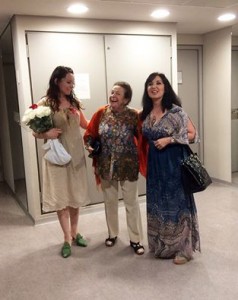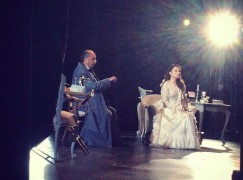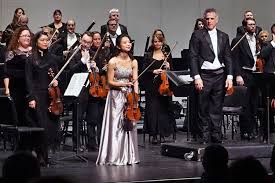A legendary Violetta meets her successor
mainI well remember the night Aprile Millo sang her first Turandot at the Met and Birgit Nilsson, who owned the role, sailed serenely down the aisle by way of benediction.
Last night at the Liceu in Barcelona something similar happened.

The fabulous Ileana Cotrubaş came backstage to meet two Violettas in La Traviata, Anita Hartig and Elena Mosuc. Hartig was making her debut in the role. She won’t forget the moment as long as she lives.

Hartig with Leo Nucci in David McVicar’s production






Comments